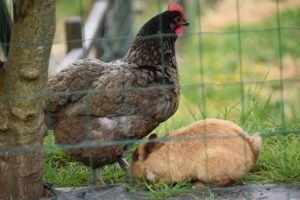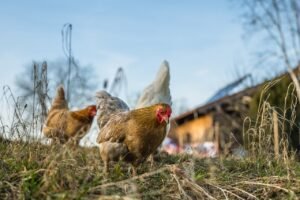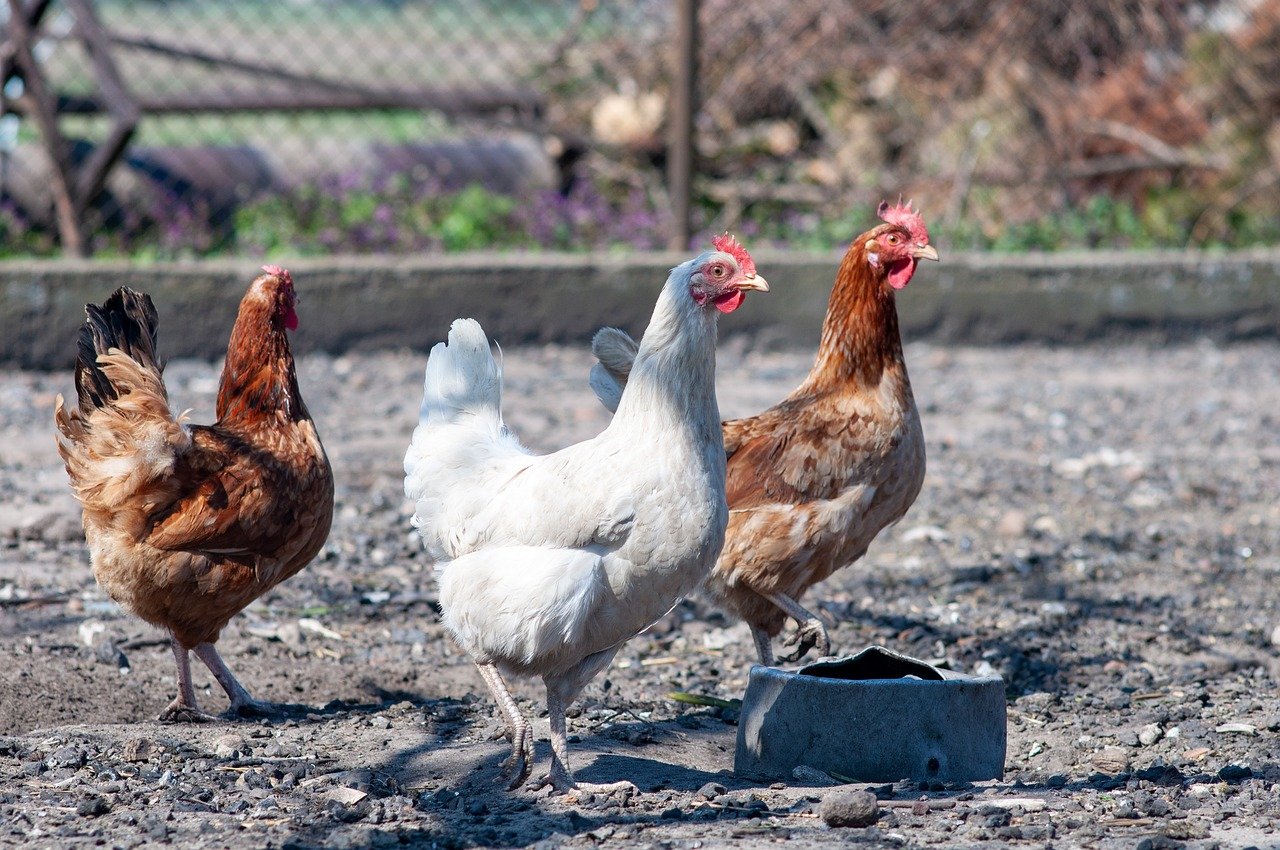
Have you ever asked the question, how often should you clean a chicken coop? Maintaining a clean and tidy coop is essential for the overall health and well-being of your hens. In this article, we will explore the factors that determine the frequency of coop cleaning, as well as provide you with some practical tips to ensure a clean and comfortable living space for your feathered friends. So, let’s roll up our sleeves and find out the best cleaning routine for your chicken coop!
Choosing the right cleaning schedule
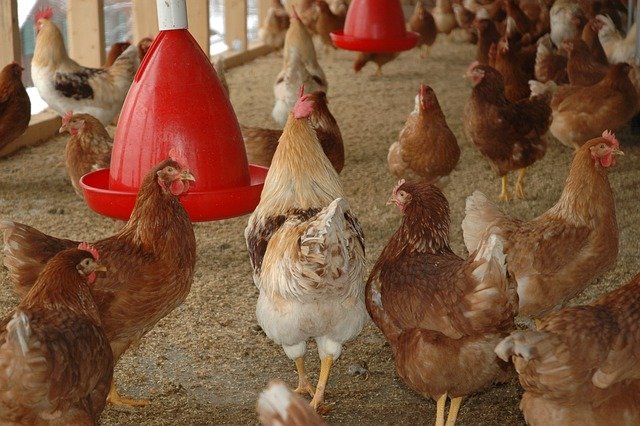
When it comes to maintaining a clean and healthy chicken coop, it’s important to establish a proper cleaning schedule. By staying on top of regular cleaning tasks, you can ensure a clean and comfortable living environment for your chickens. Here are a few factors to consider when determining how often to clean your chicken coop.
Consider the number of chickens
The number of chickens you have in your coop will play a significant role in how often you need to clean. As a general rule of thumb, the more chickens you have, the more frequently you’ll need to clean. The reason behind this is simple – more chickens equal more waste. It’s important to provide enough space for your chickens to move around comfortably and for waste to be spread out, reducing the need for frequent cleaning.
Evaluate the coop size
Another important factor to consider is the size of your chicken coop. A larger coop typically requires more frequent cleaning, as waste can accumulate in larger areas. On the other hand, smaller coops may need less frequent cleaning due to limited space. Assess the size of your coop and the number of chickens you have to determine the appropriate cleaning schedule.
Assess the weather conditions
Weather conditions can also impact the cleanliness of your chicken coop. If you live in an area with high humidity or frequent rainfall, the coop may become damp and conducive to bacteria growth. In such cases, more frequent cleaning may be necessary to maintain a healthy environment for your chickens. On the other hand, if you live in a dry climate, you may not need to clean as often, but it’s still essential to keep an eye on any buildup of waste or pests.
Signs that indicate the need for cleaning
Now that you understand the factors to consider when establishing a cleaning schedule, let’s take a look at some signs that indicate the need for cleaning your chicken coop. By recognizing these signs early on, you can prevent the buildup of bacteria and promote the well-being of your flock.
Foul odor
One obvious sign that your chicken coop needs cleaning is a foul odor. If you notice a strong, unpleasant smell emanating from the coop, it’s a sure sign that waste has accumulated and bacterial growth is occurring. The odor is not only unpleasant for you but can also be harmful to your chickens’ respiratory health.
Excessive fly population
Flies are attracted to waste, and an excessive fly population around your chicken coop indicates that the waste has reached a level that requires immediate attention. Flies not only cause annoyance but can also spread diseases and lay eggs in the coop. Regular cleaning will help control the fly population and keep your chickens healthy.
Buildup of droppings
A buildup of droppings is another clear indication that it’s time to clean the coop. Droppings can accumulate on the floor, perches, and nesting boxes, creating an unsanitary environment for your chickens. Regular removal of droppings is essential to prevent the spread of bacteria and parasites.
Matted feathers
If you notice matted feathers on your chickens, it could be a sign that the coop needs cleaning. Matted feathers are often caused by exposure to damp or dirty bedding material. Regular cleaning and maintenance of bedding will help prevent this issue and keep your chickens’ feathers clean and healthy.
Visible pests
Pests such as mites, lice, and fleas are common in chicken coops and can cause significant discomfort and health problems for your flock. If you spot any visible pests on your chickens or around the coop, it’s a clear indication that cleaning and pest control measures are needed. Regular cleaning and thorough inspections will help prevent and manage pest infestations.
Daily cleaning tasks
To maintain a clean and hygienic chicken coop, there are certain daily cleaning tasks that you should incorporate into your routine. These tasks will help keep your coop in good condition and promote the overall health of your flock.
Removing fresh droppings
Start by removing any fresh droppings from the coop each day. This can be done using a rake, shovel, or other suitable tools. Regular removal of droppings will prevent the buildup of waste and odors, as well as minimize the risk of disease transmission.
Refilling water and food containers
Check and refill the water and food containers daily. Fresh, clean water is essential for your chickens’ hydration, health, and egg production. Similarly, ensuring that the food containers are filled with the appropriate feed will keep your chickens well-nourished.
Checking for any sick or injured chickens
While cleaning the coop, take a moment to inspect your chickens for any signs of illness or injury. Early detection of health issues can prevent the spread of diseases and allow for prompt treatment.
Collecting eggs
Collecting eggs daily is not only essential for freshness but also helps maintain cleanliness in the nesting boxes. Leaving eggs in the coop for extended periods can lead to breakage and create an inviting environment for pests. Make it a habit to collect eggs regularly to ensure a clean and safe nesting area for your chickens.
Weekly cleaning tasks
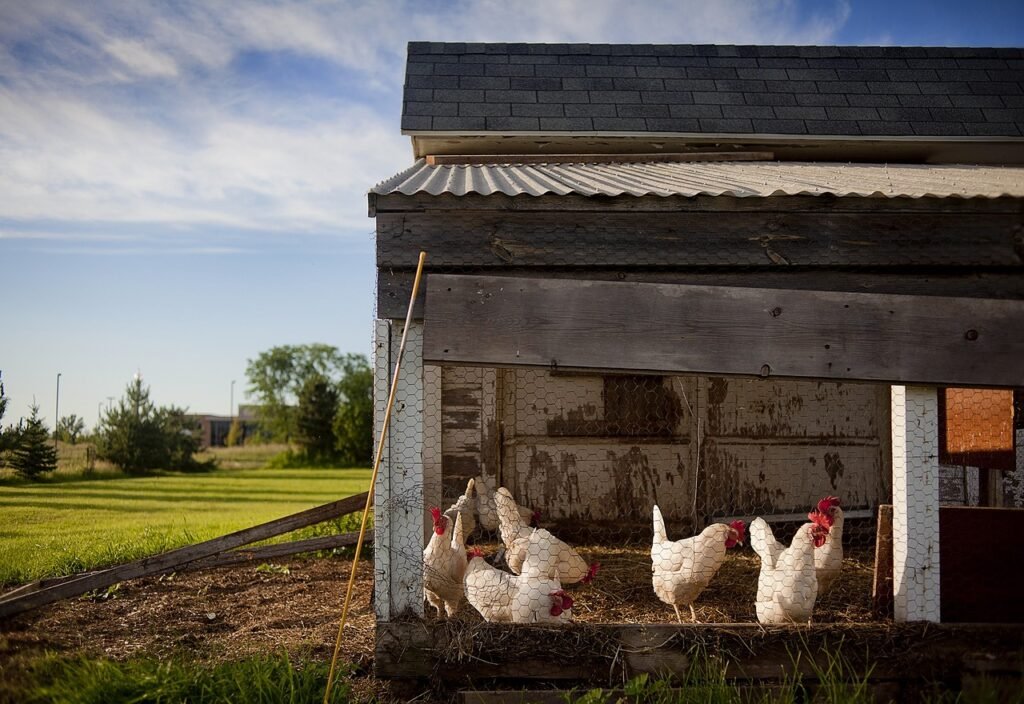
In addition to the daily cleaning tasks, there are certain weekly cleaning tasks that should be incorporated into your cleaning schedule. These tasks will help keep your coop tidy, prevent the buildup of waste and pests, and ensure a healthy living environment for your chickens.
Removing and replacing bedding material
Weekly removal and replacement of bedding material are crucial to maintain cleanliness in the coop. Bedding material, such as straw or wood shavings, can become soiled over time and harbor bacteria and parasites. Remove the old bedding material and replace it with fresh, clean bedding to provide a comfortable and hygienic environment for your chickens.
Sweeping or hosing down the floors
Sweeping or hosing down the coop floors can help remove any traces of droppings, feathers, or debris that may have accumulated throughout the week. This task not only helps maintain cleanliness but also aids in pest control by eliminating potential hiding spots for pests.
Cleaning and disinfecting waterers and feeders
Regular cleaning and disinfection of waterers and feeders are essential to prevent the growth of bacteria and keep your chickens healthy. Empty the containers and thoroughly scrub them with a mild detergent or poultry-safe disinfectant. Rinse them well before refilling with fresh water and feed.
Inspecting and repairing any structural damage
As you clean the coop, take the time to inspect the structure for any signs of damage or wear. Check for holes, cracks, loose wires, or any other potential entry points for pests. Repair any damages promptly to maintain the integrity of the coop and prevent unwanted visitors.
Monthly cleaning tasks
In addition to the daily and weekly cleaning tasks, there are certain monthly cleaning tasks that are necessary to ensure a thorough and comprehensive cleaning of your chicken coop. These tasks focus on deeper cleaning, disinfecting, and maintaining a healthy environment for your flock.
Thoroughly cleaning all surfaces
Once a month, dedicate some time to thoroughly clean all surfaces in the coop. Use a mild detergent or poultry-safe disinfectant to scrub walls, perches, nesting boxes, and any other surfaces that may have come into contact with waste. Rinse well to remove any residue and allow surfaces to dry before reintroducing your chickens.
Scrubbing and disinfecting nesting boxes
Nesting boxes should be thoroughly cleaned and disinfected on a monthly basis. Remove any old nesting material, clean the boxes with a mild detergent or disinfectant, and rinse thoroughly. Ensure the boxes are completely dry before replacing fresh bedding material to prevent the growth of mold or bacteria.
Treating for external parasites
Monthly inspections are an excellent opportunity to treat your chickens for external parasites, such as mites or lice. Follow the instructions provided with poultry-safe treatments, and be thorough in treating all affected areas, including the chickens themselves, perches, and nesting boxes.
Removing cobwebs and dust
Cobwebs and dust can accumulate in hard-to-reach areas of the coop and contribute to poor air quality. Use a broom or brush to remove cobwebs from corners, ceilings, and walls. Dust shelves, perches, and any other surfaces to eliminate allergens and maintain a clean environment for your flock.
Cleaning during seasonal transitions
Seasonal transitions provide an opportunity for more extensive cleaning and preparation for weather-specific challenges. By incorporating seasonal cleaning tasks into your regular cleaning routine, you can ensure that your chicken coop remains in optimal condition throughout the year.
Preparing for winter
As winter approaches, it’s important to prepare your chicken coop for the colder temperatures. Insulate the coop, seal any drafts, and ensure that the ventilation systems are working properly. Deep clean the coop, paying special attention to areas where moisture can accumulate and result in frostbite or other health issues.
Cleaning before summer heat
Summers can bring intense heat, which can be challenging for your chickens. Before the heat sets in, thoroughly clean the coop, paying special attention to ventilation systems, and ensuring that fans or air vents are in good working condition. Remove any excess bedding to minimize heat retention in the coop.
Spring cleaning considerations
Spring is a time of renewal, making it the perfect time for a thorough cleaning of your chicken coop. Remove all bedding material, thoroughly clean all surfaces, and disinfect the coop to eliminate any pathogens that may have built up over the winter. Clean and inspect nesting boxes, and ensure that the coop is adequately ventilated for the warmer weather.
Fall cleaning considerations
Fall cleaning is essential for preparing your chicken coop for the colder months ahead. Thoroughly clean all surfaces, remove any remaining bedding, and inspect the coop for any repairs or maintenance that may be needed. Ensure that the coop is well insulated and free from drafts to keep your flock warm and healthy during the winter.
Maintaining proper ventilation
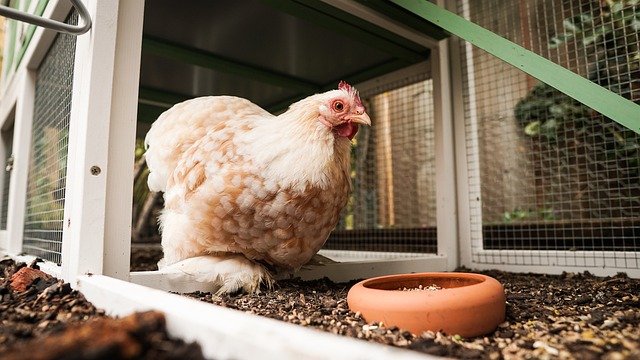
Proper ventilation is crucial for a healthy chicken coop. Adequate airflow helps maintain optimal humidity levels, prevents the buildup of ammonia from waste, and ensures a fresh supply of oxygen for your chickens. Here are a few important factors to consider when it comes to maintaining proper ventilation.
Importance of good airflow
Good airflow is essential for the overall health and well-being of your chickens. Poorly ventilated coops can result in excessive moisture, ammonia buildup, and increased risk of respiratory issues. Proper airflow helps remove moisture, odors, and airborne pathogens, creating a healthier living environment for your flock.
Checking vents and windows
Regularly check all vents and windows in your chicken coop to ensure that they are clean, unobstructed, and functioning correctly. Properly positioned vents will promote the circulation of fresh air, while windows can be used to regulate temperature and provide additional airflow.
Installing fans or air vents
In certain climates or during specific seasons, you may find it necessary to install fans or air vents to improve ventilation in your chicken coop. Fans can help circulate air and prevent stagnant conditions, especially during periods of high temperatures. Air vents, strategically placed, can also contribute to improved airflow.
Preventing diseases and health issues
Maintaining a clean and hygienic chicken coop is critical for preventing diseases and health issues in your flock. By implementing proper cleaning practices and following biosecurity measures, you can significantly reduce the risk of illness and promote the overall well-being of your chickens.
Understanding the impact of cleanliness
Cleanliness plays a vital role in preventing the spread of diseases and maintaining optimal health in your flock. A dirty and unsanitary coop provides an ideal environment for bacteria, parasites, and other pathogens to thrive. Regular cleaning, combined with proper waste management and disinfection practices, helps minimize the risk of disease transmission.
Quarantining new chickens
When introducing new chickens to your flock, it’s essential to quarantine them for a period of time before integrating them into the main coop. Quarantining allows you to observe the new chickens for any signs of illness or parasites and prevents the potential spread of diseases to the rest of your flock. Keep them in a separate, clean area with its own food and water containers.
Implementing biosecurity measures
Biosecurity measures are crucial for protecting your flock from diseases. Limiting visitors to your coop, disinfecting equipment and footwear, and practicing good hygiene when handling your chickens are all important aspects of biosecurity. By implementing these measures, you can reduce the risk of introducing diseases into your coop and maintain a healthy flock.
The role of deep cleaning
While daily, weekly, and monthly cleaning tasks help maintain a clean living environment for your flock, deep cleaning is a more extensive and thorough process that should be conducted periodically. Deep cleaning helps eliminate hidden bacteria, pests, and odors that may not be removed through regular cleaning.
When and why to do a deep cleaning
Deep cleaning should be done at least once a year or more frequently if needed. It is particularly important to deep clean the coop after periods of illness or infestations. Deep cleaning involves removing all chickens, completely emptying the coop, and providing a thorough cleaning and disinfection of all surfaces.
Step-by-step guide for deep cleaning
To conduct a deep cleaning of your chicken coop, follow these step-by-step guidelines:
- Remove all chickens from the coop and provide them with temporary housing.
- Empty the coop completely, including removing all bedding material, nesting material, and any other debris.
- Thoroughly sweep or hose down the coop, removing all traces of waste, feathers, and dirt.
- Clean all surfaces with a suitable disinfectant, paying special attention to corners, perches, nesting boxes, and any other areas that may harbor bacteria or parasites.
- Rinse all surfaces well to remove any residue from the disinfectant.
- Allow the coop to dry completely before reintroducing your chickens.
- Replace bedding material, nesting material, and freshen up the coop with clean straw or wood shavings.
Choosing the right cleaning products
When conducting a deep cleaning or using any cleaning products in your chicken coop, it’s important to choose safe and effective options. Avoid using harsh chemicals or cleaners that may leave toxic residues. Instead, opt for poultry-safe disinfectants or natural cleaning solutions, such as vinegar or hydrogen peroxide, which are effective at killing bacteria and viruses.
Efficient waste management
Proper waste management is an essential aspect of maintaining a clean and healthy chicken coop. Effective waste management not only promotes cleanliness but also provides opportunities to recycle and repurpose waste for other purposes, such as garden fertilizer.
Proper disposal of chicken waste
Chicken waste, such as droppings and used bedding material, should be disposed of properly to prevent the spread of diseases and minimize odors. Bagged waste can be placed in sealed containers and disposed of in accordance with local waste disposal regulations. It’s important not to store waste near the coop or in areas where it may contaminate water sources.
Composting options
Composting is an excellent way to repurpose chicken waste and create nutrient-rich soil amendments for your garden. Set up a compost bin or pile away from the coop, and add plant material, such as leaves or grass clippings, along with chicken waste. Regularly turn the compost to promote decomposition and create a balanced compost that can be used to enrich your garden soil.
Utilizing waste as garden fertilizer
Chicken waste, when properly composted, can be valuable as a garden fertilizer. Once the composting process is complete, the nutrient-rich compost can be spread over gardens or incorporated into potting soil for potted plants. As a natural fertilizer, it provides essential nutrients to plants and eliminates the need for synthetic alternatives.
In conclusion, maintaining a clean and hygienic chicken coop is crucial for the health and well-being of your flock. By establishing a proper cleaning schedule, recognizing signs that indicate the need for cleaning, and following thorough cleaning practices, you can ensure a comfortable and safe living environment for your chickens.
Daily, weekly, and monthly cleaning tasks, along with seasonal cleaning considerations, contribute to a well-maintained coop. Proper ventilation, disease prevention measures, deep cleaning, and efficient waste management are additional factors to consider for optimal coop maintenance. By implementing these practices, you can enjoy the benefits of healthy, happy chickens and thriving egg production.
